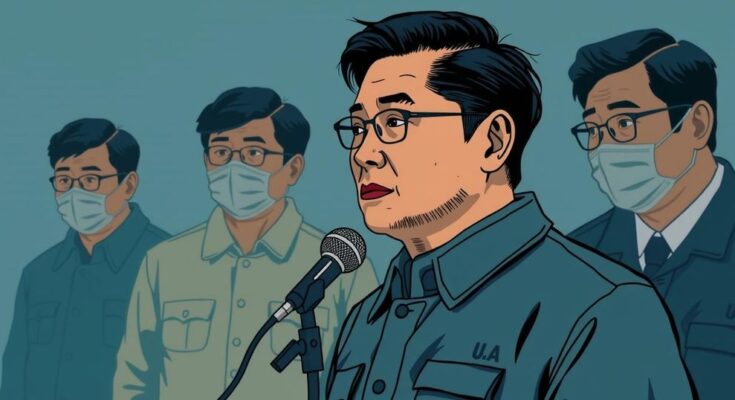Chinese authorities are reportedly harassing critics living in Japan, using threats against their families in China to suppress dissent. Human Rights Watch reports increased pressure on individuals from China engaging in politically sensitive activities, leading many to self-censor. The organization calls for a system to protect individuals’ rights and privacy amidst these threats, urging Japan to take firm action against transnational repression.
In Japan, Chinese authorities are reportedly intimidating individuals from China who engage in activities criticizing the government. Human Rights Watch highlights that this alarming trend aims to silence dissent among the Chinese diaspora, especially those from Xinjiang, Tibet, and Inner Mongolia, by threatening their families back in China. The methods employed include coercive calls, pressure to disclose information about dissidents, and warnings to cease political participation. Human Rights Watch conducted interviews with 25 individuals from areas like Hong Kong and Xinjiang, all of whom had participated in peaceful activities opposing Beijing’s one-party rule. Themes such as raising awareness about the dire situation in Xinjiang and advocating for cultural rights were common among their activities. Many revealed attempts from the Chinese police to pressure them or their relatives to stop their engagements, demonstrating a clear tactic of threat and reprisal. Some interviewees recounted experiences of being contacted by authorities, who pressured them via family ties or social media. Several Uyghur individuals received intimidating calls demanding that they cease their activities or share details about other Uyghur community members. This illustrates a pervasive atmosphere of fear that cultivates self-censorship among those wishing to express opposition against the Chinese government. In stark revelations, some individuals who attempted to renew their official documents were met with coercive tactics from the Chinese embassy, reinforcing fears of imprisonment or punishment for dissent. Further reports indicated that others had previously faced arbitrary arrests upon returning to Hong Kong for expressing pro-democracy sentiments. This trend showcases an alarming disregard for basic human rights and freedoms. Despite several individuals feeling helpless in seeking support, citing fears of retaliation or hopelessness about local authorities’ effectiveness, there are growing calls for the Japanese government to address this transnational repression. Human Rights Watch advocates for a reporting system tailored to protect the privacy and rights of those facing government suppression, encouraging the establishment of safeguards to prevent deportation or extradition. Japan must stand firmly against the increasing threats posed by the Chinese government, advocating for the safety and human rights of Chinese nationals in its territory. Through collective international actions, such as last month’s UN Human Rights Council resolution against transnational repression, Japan can work towards reinforcing protections for victims. Establishing a support framework and vocalizing opposition against such violations is crucial for creating a safer environment for critics of the Chinese regime in Japan.
The issue of transnational repression involves state actors extending their influence beyond their borders to suppress dissent among expatriates and diaspora communities. In this case, China employs intimidation tactics against critics residing in Japan, particularly targeting ethnic groups sensitive to Beijing’s policies, such as Uyghurs, Tibetans, and Inner Mongolians. This phenomenon raises profound concerns about the rights of individuals to express their views freely without facing repercussions from their home governments.
The Chinese government’s harassment of critics abroad ventures into troubling territorial waters, forcing individuals to navigate a minefield of family threats and coercive tactics. Human Rights Watch’s call to action emphasizes the necessity for Japan to construct a protective framework safeguarding the rights of its residents facing such intimidation. Addressing these issues is not merely about individual safety; it embodies a broader commitment to uphold human rights on a global scale. Japan’s proactive stance against transnational repression can serve as a model for international cooperation in safeguarding human rights.
Original Source: www.genocidewatch.com



